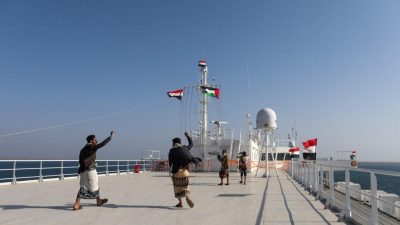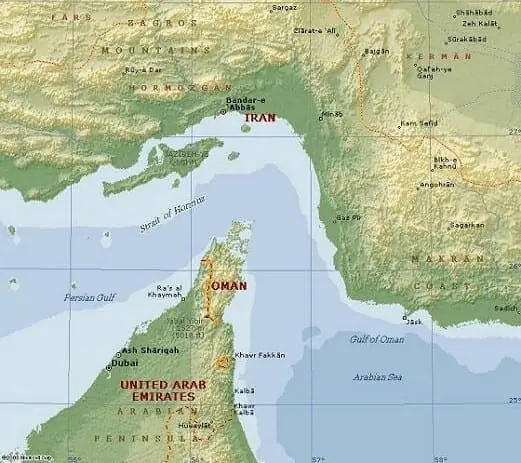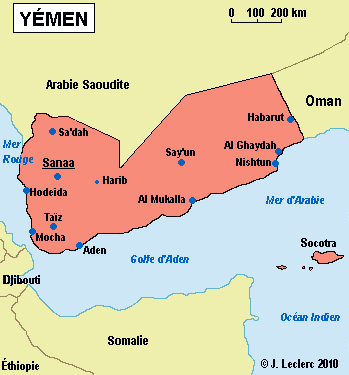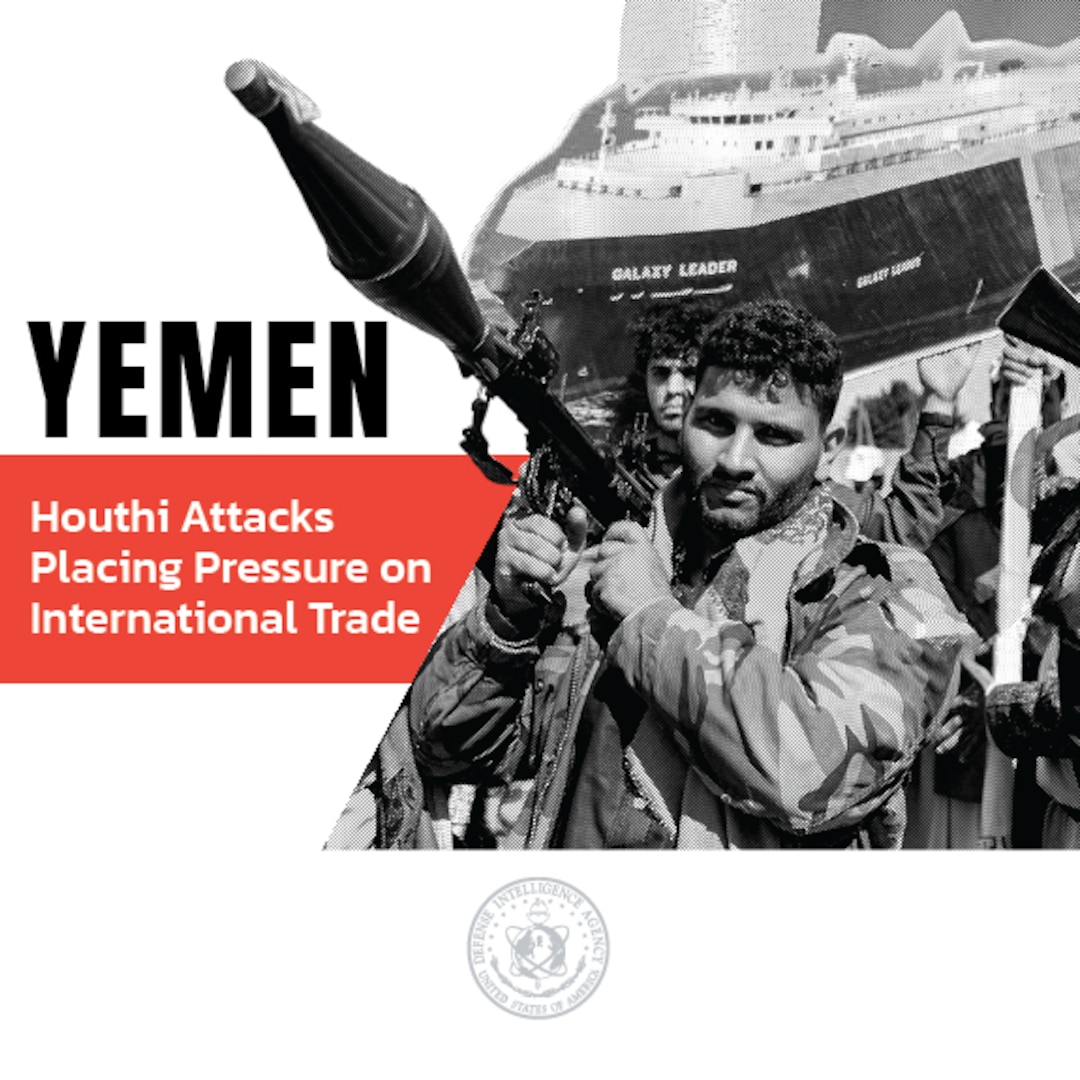
Since 1945, American geopolitics have relied heavily on sea power and the dollar’s dominance. This strategy enabled the U.S. to win the Cold War in 1989 and declare a unipolar world. By fortifying key maritime chokepoints and controlling global sea trade routes through allies, bilateral agreements, bases, and naval presence, the U.S. dominated global trade and finance. As George Friedman, the founder of the American think tank STRATFOR, wrote in his 2010 book, “The Next Decade”:
“American power is based on the oceans… Global trade depends on the oceans. Whoever controls the oceans controls global trade… The U.S. controls all oceans. No power in history has achieved this. This control forms the foundation of U.S. security and its ability to shape the international system. Without U.S. approval, no one can navigate the seas.”
American Naval Power Is Ineffective
Today, things are not going as Friedman predicted. Since December 2023, maritime trade, which depends on the oceans and six strategic chokepoints, canals, straits, and nodes, has been significantly disrupted.
The U.S., which has been losing ground in every field and recently lost all moral and ethical values by applauding Netanyahu, the architect of the Gaza genocide, in the American Congress, cannot control the global maritime traffic flow at the Bab el-Mandeb Strait.
The strategic strait, located between Yemen and Djibouti and only 25 km wide at its narrowest point, is now at great risk. (see Map below)
This situation has triggered developments that will disrupt global maritime trade. About 50 ships, carrying 7 million barrels of oil and 1.2 billion cubic meters of liquefied natural gas (LNG), used to pass through this strait daily. These quantities have now decreased by about 60%. The reason is the inability to prevent attacks by Iran-backed Yemeni Shia Houthis against Israel and Western-linked trade ships and even warships, amidst the ongoing civil war since 2015.
Image source
As the Israel-Palestine conflict, which began on October 7, 2023, enters its ninth month, and in a context where the conflict has turned into a one-sided disproportionate use of force against mostly women and children under Israel’s firepower, the Yemeni Houthis are implementing a strategy of direct attacks on trade ships and the warships protecting them to create an asymmetric impact and deter Israel from the massacre, which they see as state terrorism. These attacks pose serious threats of death, injury, sinking, and damage to ships, their crews, and their cargo. The U.S. Defense Intelligence Agency (DIA) reported that as of November 2024, the interests of at least 65 countries and 29 major energy and shipping companies have been affected by Houthi actions, leading them to change their routes to avoid Houthi attacks.
Houthis at Sea
The first Houthi attack on Israel occurred on November 9, 2023. Since then, the Houthis, affiliated with the Ansarullah organization, have carried out around 150 attacks or attempted attacks in the surrounding seas, mainly in the Bab el-Mandeb and the Gulf of Aden. Initially, they launched drone attacks from 2,000 km away on the Israeli port city of Eilat in the Red Sea. They then began attacking Israeli-flagged/owned ships using the narrow military geography advantage of the strait with missiles, armed drones, and surface vehicles. On November 19, 2023, the Houthis hijacked the Israeli “Galaxy Leader” ship in the Red Sea and took it and its crew to Yemen. On November 25, 2023, they carried out a drone attack on the “Kalandra” ship of the Israeli ZIM company off the coast of Sri Lanka in the Indian Ocean. On November 27, 2023, they attacked the American destroyer USS Mason and the nearby Liberian-flagged ship Central Park. On December 9, 2023, the Houthis declared that all ships heading to Israeli ports would be targeted.
Countermeasures Begin
On December 18, 2023, the U.S. announced the launch of Operation Prosperity Guardian to protect trade ships in the region, receiving support from Bahrain, the UK, Canada, France, Italy, the Netherlands, Norway, the Seychelles, and Spain. On December 19, 2023, the U.S., EU, NATO, Australia, the Bahamas, Japan, Liberia, New Zealand, South Korea, and Singapore issued a joint declaration condemning the Houthi attacks. As the attacks did not cease, on January 3, 2024, the same countries threatened to use force against the Houthis. On January 10, 2024, the United Nations, through Security Council Resolution 2722, warned the Houthis to stop their attacks. Ultimately, on January 13, 2024, the U.S. and the UK launched Operation Poseidon Archer, targeting Houthi land targets with cruise missiles and air power. By the start of this operation, the Houthis had attacked 15 ships, causing missile damage to six and hijacking one. However, rather than decreasing, the attacks increased following Poseidon Archer. By the end of March 2024, 27 more Houthi attacks had occurred, damaging 12 ships. On February 20, 2024, the EU launched Operation Aspides for escort and protection at sea, involving France, Italy, Germany, Greece, and Belgium.
Attacks Continue, Damage Range Expands
Despite the naval escort and prevention operations initiated by the U.S. and EU since the end of 2023 and the punitive and neutralization operations targeting Houthi radar, workshops, manpower, ports, and bases, Houthi attacks are not decreasing. Between March and July 2024, nearly 100 attempts occurred. Despite the intensification of airstrikes on Yemen and the support of the Israeli Air Force, the Greek ship “Tutor” sank on June 12, 2024. Furthermore, the Houthis increased their attacks following every destructive move by Israel in Gaza. On July 19, 2024, the Houthis displayed an extraordinary capability by hitting Tel Aviv with a drone. This demonstrated their ability to acquire long-range firepower projection means, indicating that the waters of the Eastern Mediterranean could also become dangerous in the future. Israel’s retaliation by striking the Hodeida port with its aircraft signifies that Israel is officially at war with Yemen.
Weaknesses of the Navies
Western navies’ modern air defense destroyers/frigates, with their three-layer (long-range, medium-range, and point defense) systems, have intercepted many rocket/missile/UAV attacks. However, they have not achieved 100% success, as the munitions used are very expensive and take a long time to integrate logistically. There is a vast cost difference between the missiles launched from Yemen and the air defense missiles used on modern warships. While Yemen’s weapons cost thousands of dollars, the preventive missiles used by Western navies cost millions. The prolonged presence of the American aircraft carrier USS Eisenhower in the region did not yield tangible and lasting results. American sailors felt unsafe at sea for the first time. An Eisenhower group pilot told AP:
“Most sailors, given the country’s military engagements in recent years, were not accustomed to being fired upon… The Red Sea experience was incredibly different, traumatic for the group, and something we hadn’t thought much about… It might be a new experience, but the U.S. Navy will need to adapt quickly and permanently.”
Houthi attacks were sometimes detected at the last moment. Often, these attacks penetrated multiple layers of the ship’s defense in a way not seen in modern history. AP reported that many sailors saw “the missiles launched by the Houthis seconds before their ship’s defense systems destroyed them.” According to a U.S. official speaking to CNN, the destroyer USS Gravely, on patrol, managed to intercept an approaching Houthi cruise missile with the Phalanx (CIWS) close-in weapon system after it had bypassed multiple layers of air defense.
Normalizing Maritime Trade Is Very Difficult
Even though the U.S. and EU’s operations to protect commercial traffic continue in the region, it is challenging for traffic to return to its previous statistics. The Red Sea route to Israel’s Eilat port, especially in the Gulf of Aqaba, is no longer used. On July 18, 2024, it was reported in the media that Eilat port had gone bankrupt.
Additionally, the Red Sea-Suez route’s classification as dangerous for all ships has increased insurance premiums by 6-7 times, and many companies are unwilling to risk increased damage threats. Large container companies like Maersk, MSC, OOCL, and CMA CGM have preferred the Cape of Good Hope route over the Red Sea-Suez-Mediterranean connection for the past eight months. This shift has significantly increased freight rates for tankers from the Strait of Hormuz and container shipments from China/Hong Kong. The decline in container traffic through Bab el-Mandeb and the Red Sea and the shift to the Cape of Good Hope route have disrupted container movements worldwide. In major hubs like Singapore, waiting times now exceed a week.
Eilat’s Harbor (Licensed under CC BY-SA 3.0)
Houthis’ Past Maritime Experience
The Houthis’ attacks on maritime targets are not new. During the intense period of the Yemeni civil war that began in 2015, amidst heavy embargoes and blockades imposed by the Saudis and their allies, the Houthis carried out successful attacks on a Saudi corvette with a missile off Hodeida on January 31, 2017, on another Saudi frigate with a suicide boat on February 5, 2017, and on a Saudi tanker with guided munitions on April 2, 2018, in the same area. On June 12, 2018, a Houthi missile attack on a high-speed support vessel of the UAE, bringing soldiers and ammunition to the strategic Hodeida port controlled by the Houthis, nearly sank the vessel. Besides, from June 2017 to the end of 2018, the Houthis conducted four separate attacks on Saudi coalition warships using remote-controlled boats. On July 27, 2018, Saudi Arabia announced the suspension of Saudi tankers’ passage through the Red Sea and Bab el-Mandeb Strait, citing personnel safety and environmental risks. Despite allocating 10% of its national income to defense spending, making it the third largest in the world with a $56 billion defense budget in 2018, Saudi Arabia could not subdue the Houthis or their maritime capabilities. Despite having the support of eight Sunni Arab states and the Saudi Air Force in the naval blockade against Yemen initiated in March 2015, the Saudi Navy could not succeed against the Iranian-backed Houthis. Despite being significantly weaker and more limited in manpower and resources compared to the Saudis, the Houthis managed to humiliate the Saudi Navy in front of the world.
High Morale of the Houthis
The moral superiority underlying the ship attacks launched against Israel on November 19, 2023, stems from this success against the Saudis in 2018. Before 2018, 3 million barrels of oil passed through Bab el-Mandeb daily, with the largest share belonging to the Saudis. Most of the processed products from the Yanbu Refinery on the Red Sea coast reached global markets through this strait. On the other hand, Saudi Arabia had reduced its dependence on this strait and the Strait of Hormuz with a pre-constructed pipeline that could transfer 5 million barrels of oil daily to the Red Sea. Considering scenarios where Iran might close the Strait of Hormuz, through which 15 million barrels of oil pass daily, turning the Red Sea into a dangerous area by the Houthis is indeed a significant blow to American naval geopolitics. The Houthis have further increased their leverage on the ground with the moral impact of these successes and the new tactics and techniques they have developed. As I have repeatedly emphasized, without a land invasion, it is not possible to eliminate the asymmetric naval warfare capability the Houthis have developed over the past 20 years. The question is: “Can the U.S. and its inseparable allies, Israel and the UK, launch a military invasion in Yemen? Can Saudi Arabia and Gulf countries be convinced to engage in another proxy war?”
Houthis Might Continue Even If There Is a Ceasefire
On the other hand, the Houthis’ ability to disrupt global trade continues despite intense airstrikes, suggesting that they might continue their anti-U.S./EU actions in the future, even if a ceasefire is achieved in Gaza. Aside from the increasing support the Houthis receive from Iran, the growing strategic cooperation between Iran, Russia, and China makes the Strait of Hormuz and Bab el-Mandeb, under Iran’s direct and indirect influence, the Achilles’ heel in the global power struggle for the U.S. and the EU. Today, if the Lebanon (Hezbollah)-Israel conflict in the Eastern Mediterranean escalates into an Iran-Israel and Iran-U.S. conflict, the world would lose the commercial traffic in two straits crucial for energy supply. The U.S., EU, and their partners in the Far East could not withstand the consequences of this loss. This ongoing threat would also be devastating for states like Saudi Arabia and the UAE, aiming to become global logistics hubs.

Strait of Hormuz (Source)
Houthis Are Undermining the Reputation of American Naval Power
The Yemeni resistance affects global maritime trade with its results. For instance, globally, 1,600 containers are either loaded or unloaded every minute. Or every day, 5.5 million tons of oil are transported by sea. Disruptions in the Bab el-Mandeb and Red Sea routes cause chain reactions in other areas. As a result, Israel, a state with no geostrategic depth and 90% of its foreign trade dependent on sea transportation, is finding it increasingly difficult to maintain its war economy. This situation is also crucial for U.S. support because Israel, impoverished and with fleeing investors, cannot extend the war without U.S. financial and munitions aid.
On the other hand, it can be said that the U.S. will not leave Israel in the lurch like it did with Ukraine. The U.S.-based Israel is much stronger and more populous than the Israel in the Levant. This was clearly seen in the Netanyahu show applauded in Congress last week. Thus, the U.S. will continue to protect Israel, and in this case, anti-U.S. states like Russia, China, and Iran will try every means to disrupt global maritime trade through the Houthis.

Satellite photo of Bab-el-Mandeb (From the Public Domain)
Disrupted global maritime trade will lead to a loss of power and prestige for the U.S., which has claimed to dominate the oceans since 1945. The Houthis will continue to undermine the reputation of American naval power. Preventing this is both laborious and difficult for the U.S. Without a land invasion or complete severance of maritime contact with Iran, it is not easy to stop the Houthis. If an invasion operation starts in the Red Sea, a Hezbollah-Israel and Iran-U.S.-Israel conflict would be inevitable, leading to the complete closure of the Strait of Hormuz and Bab el-Mandeb, which would mean the collapse of the global economy. If the U.S. continues to applaud Israel in Congress, the geopolitical turmoil it faces will grow. The issue is who will decide on America’s geopolitical priorities. As long as American democracy and the election process are driven by Jewish finance, it is clear who will decide these priorities.
*
Click the share button below to email/forward this article to your friends and colleagues. Follow us on Instagram and Twitter and subscribe to our Telegram Channel. Feel free to repost and share widely Global Research articles.
Spread the Truth, Refer a Friend to Global Research
Ret Admiral Cem Gürdeniz, Writer, Geopolitical Expert, Theorist and creator of the Turkish Bluehomeland (Mavi Vatan) doctrine. He served as the Chief of Strategy Department and then the head of Plans and Policy Division in Turkish Naval Forces Headquarters. As his combat duties, he has served as the commander of Amphibious Ships Group and Mine Fleet between 2007 and 2009. He retired in 2012. He established Hamit Naci Blue Homeland Foundation in 2021. He has published numerous books on geopolitics, maritime strategy, maritime history and maritime culture. He is also a honorary member of ATASAM.

















